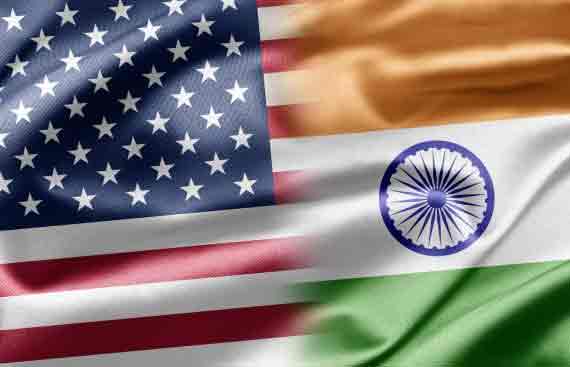ICET Streghtening US-India Partnership on Technologies

The ICET is spearheaded by the National Security Councils of both countries and focuses on strengthening the US-India partnership on the technologies that will drive global growth, bolster both countries’ economic competitiveness and protect shared national security interests
To encourage the development of vital technologies like quantum computing and artificial intelligence, National Security Advisor Ajit Doval took part in a round table discussion at the US Chamber of Commerce with his American counterpart Jake Sullivan and US Secretary of Commerce Gina Raimondo. The discussion took place in advance of the official high-level meeting of the Initiative on Critical and Emerging Technologies (ICET) in Washington. Doval stressed the importance of turning intents and ideas into precise deliverables and actionable efforts at the USIBC meeting.
The ICET, which was announced during bilateral talks between President Biden and PM Modi in Tokyo, is led by the national security councils of both nations and aims to strengthen the US-India partnership on technologies that will promote global growth, increase both nations' economic competitiveness, and safeguard their shared national security interests.
The US Chamber of Commerce hosted the round table in support of the ICET with industry executives from various advanced technology sectors, such as semiconductor design and manufacturing, commercial electronics, advanced telecommunications, commercial space, aerospace and defense, and information technology services. Leaders from venture capital firms and universities also took part.
In his opening speech, USIBC head Atul Keshap remarked that the US and India are not merely Quad partners, but members of a high-trust ecosystem supported by convergent interests and common values. Keshap also highlighted that both governments convening the ICET with such a strong industry presence at the US chamber of commerce demonstrates their recognition that business plays an essential role in bolstering the security and prosperity of the nations. The ICET is a tremendous forum for our two democracies to coordinate on sustaining a free, open, and secure global economy that can ensure the future happiness of humanity.
The United States and India would play in influencing the advancement of cutting-edge technologies. Participants in the roundtable debated ways to advance the development of important and cutting-edge technologies including quantum computing and artificial intelligence, with an emphasis on how to boost collaborations between academic and government researchers and deepen their ties to business. A major focus was on how the two governments could encourage greater agreement on technological matters, including fostering supply chain resilience for semiconductors, intensifying research and development cooperation between the two nations, enhancing workforce and educational connectivity, and encouraging co-investment and co-development.
Doval and Taranjit Singh Sandhu, India's ambassador to the US, emphasized India's outstanding potential for technology development and absorption and underlined how India uses technology not only as a tool for social inclusion but also as an enabler of economic success. Given the economies of India and the United States' natural complementary capabilities and their developing strategic convergence, both authorities praised the ICET's launch. Both emphasized the significance of reducing export control restrictions to promote technology access, co-production, and co-development between India and the US, as well as the growing role of India as a reliable supply chain partner and contributor in the global technology value chain. There was mention of microchips during one of the discussions, as well as a possible role for the two countries' relationship in establishing a trustworthy semiconductor supply chain.
The importance of startups and venture capitalists in advancing innovation and the commercialization of innovative technology was also emphasized by the panelists. Industry groups said that the US-India innovation ecosystem will be strengthened by a shared commitment to eliminate export controls, enable the migration of highly qualified employees and scientific experts, and preserve intellectual property laws.
